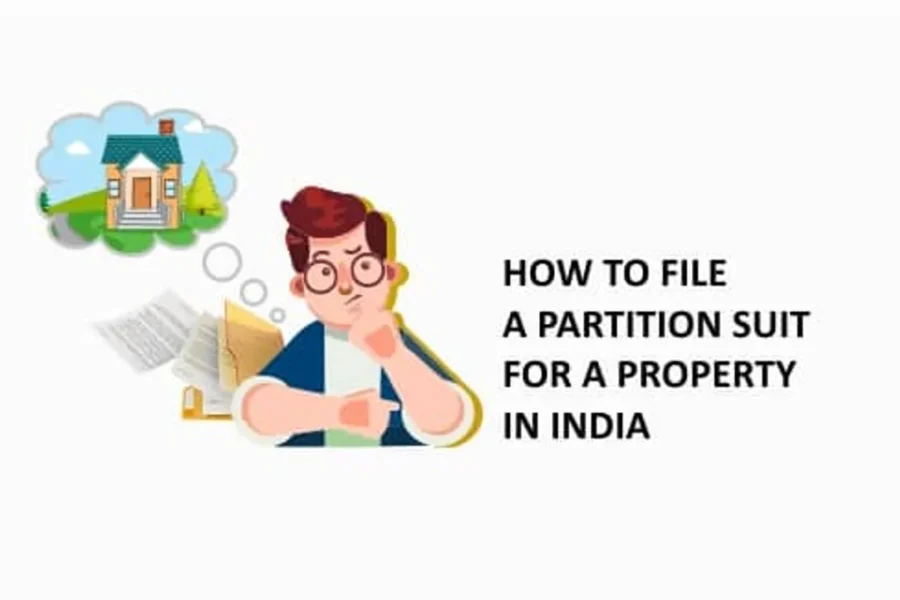A partition suit is a proceeding instituted by either of the parties when a property dispute arises in the family. Partition Deed is an official document, created either by order of the court or through negotiation between the parties. Basically, it represents the portion of the property claimed by each of the party. However, in order for a partition deed to be legally binding, the deed must mandatorily be registered at the office of the Sub-Registrar.
The time limit to file a partition suit is 12 years as per Article 65 of the Limitation Act.
How to file a partition suit?
*Begin by identifying the legal heirs of the property. While it is not compulsory for all of them to participate, a clear idea of who all can claim a property may go a long way
*Accumulate all necessary documents like identity and residence proofs, property valuation papers, and death certificate of the owner, among other details
*Send a legal notice to the defendant, and proceed with legal steps if the notice goes unattended within a stipulated time
*Draft a complaint, and Power of Attorney (POA) to be submitted at the court
*Pay the necessary court fee
*Wait for a hearing date from the court for further action on the concerned case.
Documents required for filing a partition suit-
The documents required for filing a suit for property partition are mentioned as below:
*Identity proof of legal heir
*Certified copies of all title deeds of the property, including the description of the property
*Valuation of property
*Birth and Residence proof of the legal heir
*Death certificate of the deceased owner, in original
*Residence certificate of the deceased
Partition suit: Chronology of proceedings
The first step before filing a partition suit is to send a legal notice. If the notice goes neglected, the plaintiff can proceed with the filing of the suit. Thereafter, you need to follow the below-mentioned steps-
1. Draft a complaint in accordance with the format prescribed by the court. The party filing the complaint is referred to as the plaintiff, while the opposing party is called the defendant. Relevant details, including the name of the parties, postal addresses, nature of the complaint, and an affidavit certifying that the content of the plaint is true to its knowledge, should carefully be mentioned.
2. File a Power of Attorney, which is a formal document, instating power to the advocate to represent the client in the matter of dispute.
3. Pay the court fee, which varies as per the case and from one State to another. You can determine the court fee with the help of a legal advisor.
4. Once the fee is paid, the concerned court shall fix up a date for hearing and decide on the merits of the case.
5. An important point to remember here is that the court will only proceed with the case if it finds any merits in the suit. Based on the discretion of the court, a legal notice would be issued to the defendant, demanding their appearance on the day of the next hearing.
6. The opposing party, on receipt of the notice, needs to file a written statement, in response to the complaint filed by the plaintiff. Although the written statement must be filed within 30 days of the receipt of the notice. However, the time period can be extended to up to 90 days, if the court permits.
7. Upon receiving the written statement, the plaintiff needs to either admit or deny the statements made by the defendant. The reply, in the form of a written document, is termed as replication.
8. The pleadings are complete once the replication is filed with the court. Thereafter, the parties are asked to submit relevant documents to substantiate their claims. However, the power to reject or accept the documents remains with the court.
9. In order to prove their claims, the parties also need to produce witnesses within 15 days from the date of framing of issues.
10. The court passes the final order by taking into consideration the list of documents filed by the parties, as well as the documents produced by them in the Court of Law.
11. The parties can collect a certified copy of the final order from the court.

